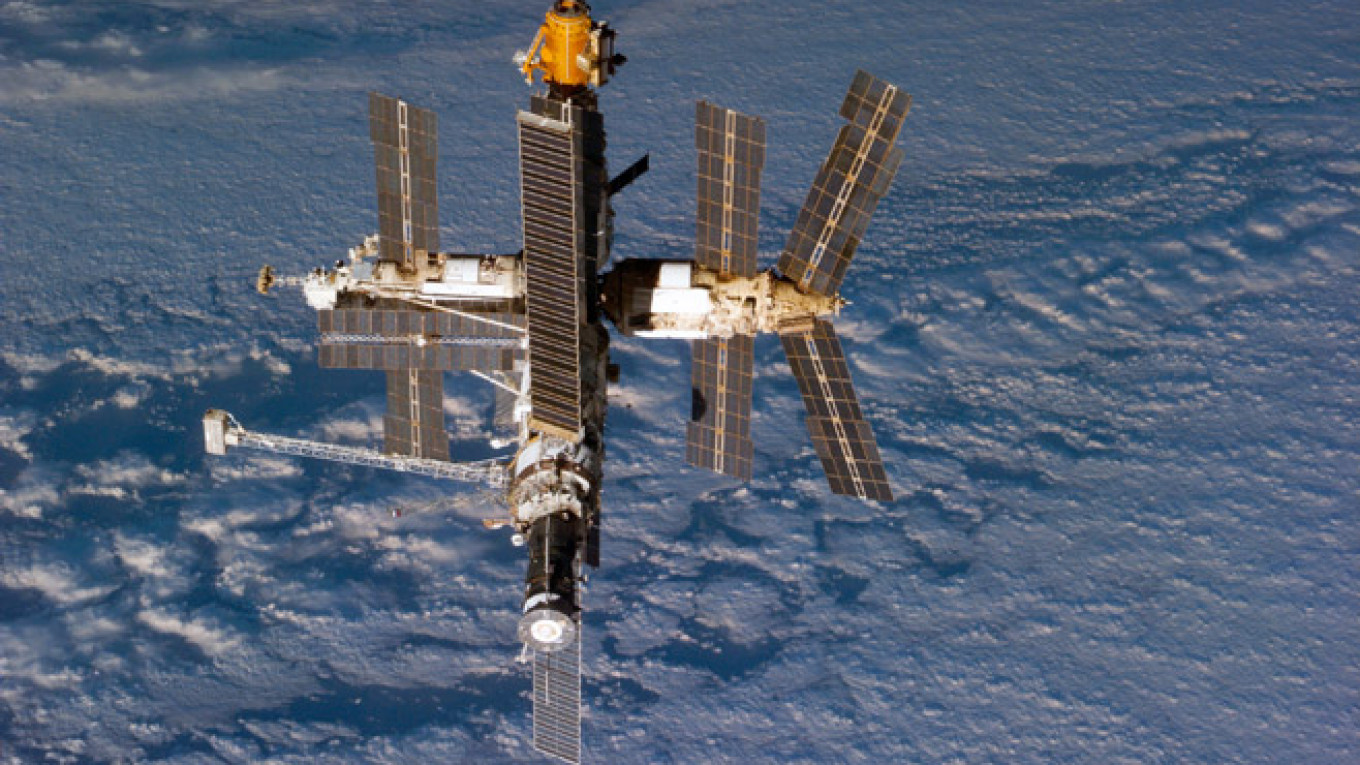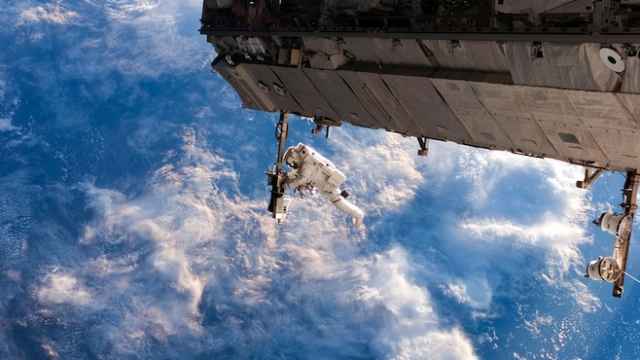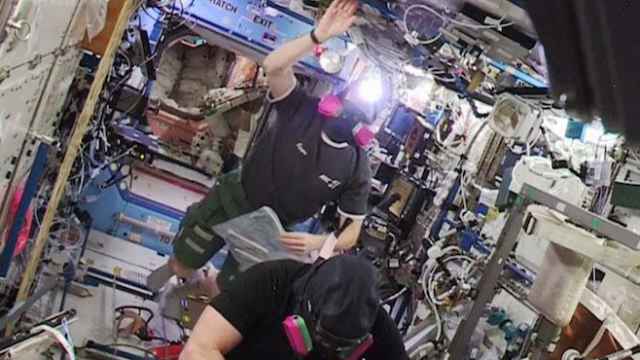Russia has drawn up a proposal to create a new space station for the BRICS group of emerging economies that could be presented at the organization's five-nation summit this year, the TASS news agency reported Tuesday, citing a copy of the document.
The proposal was crafted by Russia's Military-Industrial Commission, the government's primary interface with the aerospace and defense industries. In November, President Vladimir Putin took personal control of the commission.
"It would be useful to explore the possibility of an international manned spaceflight project with the BRICS nations within an overall strategy of entering into technological alliances," TASS cited an expert panel on the commission as saying in the document.
The document approved further work on the proposal, and suggested adding discussions of a space station for the five BRICS nations — Brazil, Russia, India, China and South Africa — to the body's business council meetings at the upcoming summit in the Russian city of Ufa.
The proposal comes after months of speculation that the crisis in Ukraine would doom U.S.-Russia space cooperation. For two decades this effort has largely been focused on the International Space Station project (ISS), which is due to end in 2020. NASA has proposed extending it to 2024, but Russia has suggested it might duck out and instead build its own space station — possibly with the participation of China.
The BRICS project would be roughly analogous to the ISS, a $150 billion project involving 15 nations. Anchored by the United States and Russia, the world's leading spacefaring powers, the ISS allows countries with less advanced spaceflight capabilities to either join onto the station's Russian and American segments or contribute smaller segments.
A BRICS space station would likely emerge from a similar two-nation partnership, again with Russia in a driver's seat. The Military-Industrial Commission recommended approaching either China or India — both countries that have well-developed and increasingly ambitious space programs. The proposal would then allow other BRICS members to join.
This would spur the development of space activities in Brazil and South Africa. Although Brazil has had an active space program since the 1960s, its efforts are still mostly focused on utilitarian satellite designs used for communications and observation. South Africa only established a space agency in 2010 and has no independent rocket launch capability.
India has yet to put a man in space without hitching rides on other nations' rockets. Last year, it demonstrated its rising capabilities after launching an unmanned satellite to Mars on a shoestring budget.
China is perhaps the best partner for such a project. China already launches its own astronauts into space, and is designing its own medium-sized space station. The placement of Russia's new Vostochny Cosmodrome in Russia's Far East also makes close cooperation with China far easier.
A Message from The Moscow Times:
Dear readers,
We are facing unprecedented challenges. Russia's Prosecutor General's Office has designated The Moscow Times as an "undesirable" organization, criminalizing our work and putting our staff at risk of prosecution. This follows our earlier unjust labeling as a "foreign agent."
These actions are direct attempts to silence independent journalism in Russia. The authorities claim our work "discredits the decisions of the Russian leadership." We see things differently: we strive to provide accurate, unbiased reporting on Russia.
We, the journalists of The Moscow Times, refuse to be silenced. But to continue our work, we need your help.
Your support, no matter how small, makes a world of difference. If you can, please support us monthly starting from just $2. It's quick to set up, and every contribution makes a significant impact.
By supporting The Moscow Times, you're defending open, independent journalism in the face of repression. Thank you for standing with us.
Remind me later.






